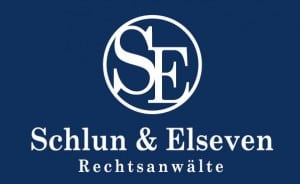Due to advancing technology, news coverage and communication have become an indispensable part of our everyday lives. As constant companions, they have a considerable influence on our actions. Negative reports that spread in an instant via social media can endanger the image of a person or a company in the long term. The German media and freedom of speech law are therefore characterised by the need to safeguard the freedom of expression, to protect personal rights and to ensure the efficient protection of reputation.
The multifaceted nature of the German media and freedom of speech law requires a deep understanding of the legal intricacies. In addition, asserting your rights without delay is necessary, as there are short preclusion periods, especially in press law, after the expiry of which legal enforceability is excluded.
The German law firm Schlun & Elseven is at your side to support you in all matters relating to the media and freedom of speech law. Whether it is a violation of your personality rights, the use of a personal image or a case of defamation, malicious gossip, or insult – our lawyers for German media, press and freedom of speech law offer competent and committed legal assistance.
Freedom of Speech vs. Protection of Personal Rights
Freedom of speech and the press, as a fundamental component of the German free and democratic legal system, play a multifaceted role in professional and everyday life. Particularly when it comes to media representations, caution is always required. In a world where anyone can publicly portray information and opinions, the legal boundaries of statements must be determined repeatedly by carefully weighing them against the protection of personal rights. Therefore, it is crucial to precisely know the scope of protection of personal rights and the limits of German media and freedom of speech law.
In particular, the following characteristics of the general right of personality constitute limits to freedom of expression and the press:
- personal honour,
- privacy,
- the representation of one’s own person,
- the right to dispose of one’s own image and words,
- informational self-determination.
Defamation Offences: Defamation, False Allegation, Insult and Slander
In the case of critical statements, it must always be specifically examined whether a legitimate expression of opinion is present or whether there has been a violation of honour. They always represent a balancing act between the rights of the parties concerned. None of the sides may have their rights curtailed, so a detailed examination is necessary.
Statements that cross the line of legitimate criticism constitute defamation offences. These include defamation (Section 187 of the German Criminal Code, StGB), false allegation (Section 164 StGB), malicious gossip (Section 186 StGB) and insult (Section 185 StGB). These offences protect the honour encompassed by the general personality right in Germany. The protection of honour is intended to ensure that a person’s ethical, moral, and social value is respected.
Injunctions are available to you if you are subjected to attacks on your honour. With the help of a legal expert, you can find out whether a remedy is possible – by asserting claims for revocation, removal, counterstatement, damages, or financial compensation.
Image Reporting: The Right to One’s Own Image
The right of personality also extends to images, which has never been as important as today due to technical developments. Not only are countless new photos and videos taken daily, but the technical possibilities for processing image and video recordings have also developed enormously. The use and publication of images are subject to many regulations that must always be observed.
Persons depicted in photographs always have the right to decide for themselves whether the images may be published and made accessible to an audience. If the person portrayed does not consent, and the image is used, the person can claim injunctive relief and damages through a written warning or in court. The right to one’s image is also essential in criminal prosecution: Even a suspected person’s image (as well as other identifying features) may not be published without further ado. A prominent example of a suspect’s claim to anonymity in criminal proceedings is the ruling of the Munich Higher Regional Court of 16.12.2020, in which it was decided that even in the case of a severe economic offence (Wirecard) and despite an existing urgent suspicion of the crime, identifying reporting is inadmissible.
However, German law provides for several exceptions in which the consent of the person depicted is dispensable, and no claims can be made, e.g., if the image’s publication serves an artistic purpose or if the person portrayed can only be considered an accessory.
Intellectual Property Protection | Copyright and Trademarks
Intellectual property protection is closely related to the media and freedom of press law in Germany. Freedom of expression and the press are always limited by the intellectual property of third parties, i.e., copyrights, trademarks, and patents. Protecting intellectual property is crucial to the continued success of a business, as recognisable logos and designs are instrumental in successfully connecting with customers. Intellectual property is essential for companies involved in film and television production, printing, animation, communications, broadcasting, music, and technology. Those in the creative industries must protect and ultimately reward the dedication required to produce high-quality work. Our German intellectual property lawyers advise you on all aspects of copyright, trademark, and patent law.
Media Law
German media law covers a wide range of legal areas – including the law of expression and press law, data protection, telecommunications, copyright protection and protection of honour. The legal confrontation with defamatory reporting, violation of privacy, false reports, and hate speech shows how complex and personal media law can be.
Media Employment Law
Schlun & Elseven offers employers and employees in the media industry comprehensive legal solutions in all matters of German employment law. Our lawyers draft employment contracts, advise on best practices, provide ongoing support, and competently represent clients in employment court proceedings. In complex disputes, our lawyers offer litigation and arbitration services.
Legal Support for the Entertainment Industry
Anyone in the entertainment industry needs reliable legal advice and industry-specific insight into the ever-changing legal landscape. As a full-service multidisciplinary law firm, we support clients in the film, television, radio, music, gaming, publishing, commercial theatre, multimedia, interactive media, and visual arts industries. Our legal services include drafting, negotiating, and analysing contracts, preparing applications for required licences and regulatory approvals, and representing clients in disputes related to the staging of live events.

Practice Group: German Media & Freedom of Speech Law
Practice Group:
German Media & Freedom of Speech Law
Contact our German Media & Freedom of Press Lawyers
Please use the form to tell our team of German media & freedom of speech lawyers about your legal matters. After receiving your request, we will make a short preliminary assessment based on the information provided and give you a cost estimation. You are then free to decide whether you want to instruct us.








